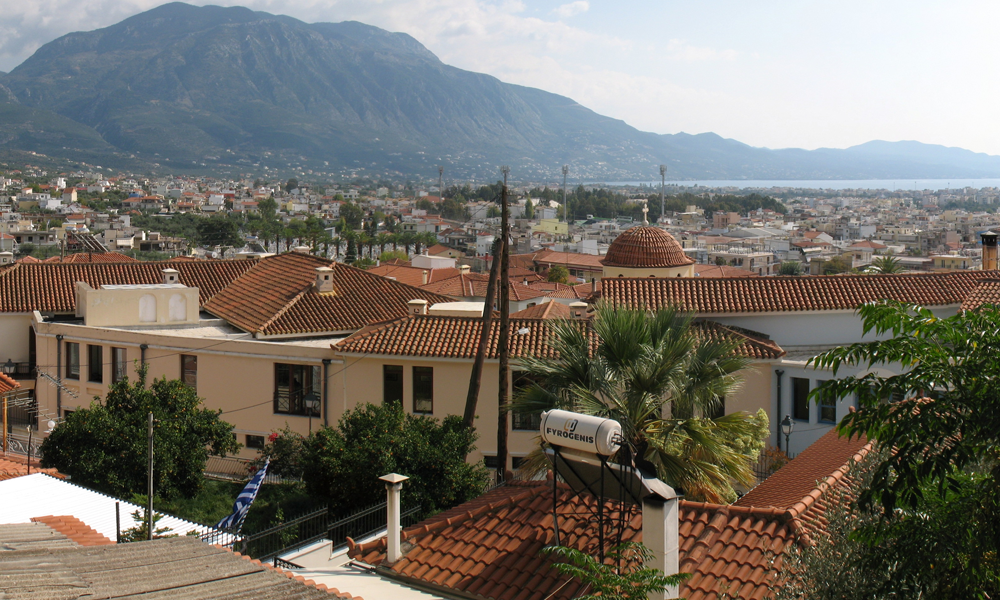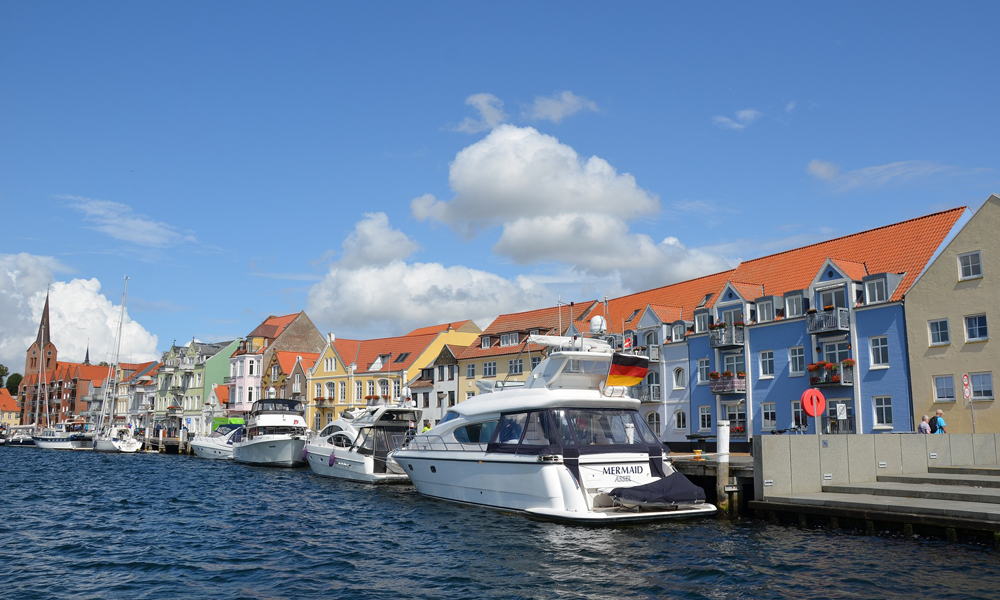The third cohort of Pilot Cities from across twelve European Union and Horizon Europe Associated Countries has been selected to join the Pilot Cities Programme portfolio, embarking upon unprecedented climate action.
25 cities are set to join the Pilot Cities Programme making the portfolio 104 cities as they test solutions for rapid decarbonisation
With cities working individually or as multi-city pilots , these Pilot Cities will implement systemic and locally designed innovative actions that span multiple areas, from buildings to waste, and levers of change, including governance, finance and policy. The 25 cities are part of 21 Pilot City Activities, from 12 countries, that have been selected from a wide array of applications across the European Union and Horizon Europe Associated Countries.
Please note that although the cities been selected, the grant award depends on cities progressing through the final stage. This includes completing the Grant Agreement Process and meeting the programme’s due diligence requirements.
Multi-City Pilot Activities

GERMANY
Munich, Dortmund & Heidelberg
Climate City Dash 2.0

GERMANY
Leipzig & Dresden
EnAct4CleanCities

IRELAND
Dublin & Cork
BUILD CAPA-CITIES
Individual Pilot Cities Activities

ANGERS LOIRE METROPOLE, FRANCE
AMBITION

ANTWERP, BELGIUM
LINK

ATHENS, GREECE
ASCEND – Athens Superblock

BORDEAUX METROPOLE, FRANCE
Acting By Collaborating Differently (ABCD)

BRUSSELS, BELGIUM
EMPOWER

COMMUNAUTE URBAINE DE DUNKERQUE, FRANCE
Net-zero Urban-industrial Growth (NZUIG)

ELBASAN, ALBANIA
©Wikipedia|Albinfo|2017|Elbasan from the South
Green and Sustainable Energy in Elbasan Buildings

GABROVO, BULGARIA
©Wikipedia|Plamen Agov studiolemontree|2010|Gabrovo Town Hall
NetZeroHero

GOTHENBURG, SWEDEN
Fast Forward Green City Zone

HELSINKI, FINLAND
Systemic Heat Shift (SHS)

IZMIR, TURKEY
Digital Solutions for Electricity Consumption by Global Climate Community Izmir (GCC-SYNERGY)

KALAMATA, GREECE
©Wikipedia|macrolepis|2008
SchoolHeroZ: A Holistic Roadmap to Net Zero Schools

CITY OF PARIS, FRANCE
NEAR-Neighbourhoods’ Engagement for Accelerated carbon Reductions

REYKJAVIK, ICELAND
Piercing through the Gridlocks

SØNDERBORG, DENMARK
ZERO Industry

TAMPERE, FINLAND
Mobility Mindshift – Co-designing a Mindshift for Sustainable Mobility

THESSALONIKI, GREECE
ReGenWesT – Thessaloniki west center Green Deal

TRIKALA, GREECE
©Wikipedia|C messier|2018|Trikala Central Bridge
Trikala’s City Climate Neutrality Hub with intelligent energy management
NETZEROCITIES PILOT CITIES PROGRAMME
This two-year learning programme supports European cities to test and implement systemic and locally designed innovative approaches to rapid decarbonisation contributing to the EU Mission for Climate-Neutral and Smart Cities.
CALL DOCUMENTS
Call Guidelines
Pilot Cities Call Guidelines (If you need this document in Word format for translation purposes, please contact us)
FREQUENTLY ASKED QUESTIONS – Cohort 3 (2024)
Consortium and Agreements
We strongly recommend having the Consortium Agreement signed before signing the Grant Agreement. If this is not possible, the Effective Date can be retroactive and should be aligned with the Effective Date of the Grant Agreement: 1st of September 2024 to 31st August 2026.
Each Party commits to this Consortium Agreement when signing the document on its own behalf. Still the Effective Date is the same for all Parties that have signed the document, and we recommend this one to be 1st of September 2024.
You can use your usual internal consortium agreement or the DESCA model available online should this helps.
You can use your respective existing time registration system in which project staff record their hours working on the project. The record in the respective system will be the database for you to transform this time spent by the staff dedicated to the project into a claimable cost at reporting time for reimbursement.
If your system is set in Hours, you will need to turn hours recorded into ‘Day-equivalent’ (and then multiple by daily rate you have calculated for respective staff based on 215 working days for a full-time equivalent).
Please see after, 3 conversion rules methods:
- A conversion based on the average number of hours that the person must work per working day according to her/his contract. Example: If the contract says that the person must work 37,5 hours per week distributed in 5 working days, a day equivalent for the person is 7,5 hours (37,5 / 5).
- A conversion based on the usual standard annual productive hours of the beneficiary, if it is at least 90% of the workable time. Example:
Standard annual productive hours of the beneficiary = 1600
Standard annual workable hours of the beneficiary = 1720
1720 x 90% = 1548 < 1600
1600 / 215 => 7.44 hours = 1 day-equivalent
- A conversion based on a fixed number of hours (e.g. for Partners with no reference in their contracts of standard weekly nor annual hours): Example: 1 day-equivalent = 8 hours trackable via hours-based timesheet.
If you do not have time-record system in place, The European Commission has published a Time declaration template for Horizon Europe (here). This template meets the minimum requirements for time recording (recording of days worked in project) and can be used by employees working exclusively on the project as well as employees working also on other activities and projects.
Internal timesheets record in hours can still be used in the project (the hours reported here will only need to be converted to days for the purposes of the cost report).
The intention is that only the lead Pilot City signs the grant agreement on behalf of the consortium. The list of partners forming the consortium will be listed in Annex I of the Award Agreement. Lead City and consortium partners will be jointly responsible for the technical implementation and individually responsible for their budgets. A consortium agreement is strongly recommended as it can help clarify roles and responsibilities, liability, dispute settlements. You can use DESCA model reference, should this help, provided in the award agreement communication.
The lead city and signatory of the Award Agreement will be the sole recipient of the grant financing and should organise to cascade the funding to the other consortium partners and arrange the distribution schedule and requirements. This may be substantively managed via a consortium agreement; a recommended EU public model (DESCA model) was shared as an example in the Financial Guidelines.
Financial and Budget
A personal computer is considered a consumable item in accounting practices. The individual would receive it whether they work on the project or not, making it classified as an indirect cost, similar to items like flipcharts and office supplies.
However, if the computer is a specific type required by the individual for delivering project activities, it would be categorised as a direct cost and subject to depreciation rules. For instance, in ICT organisations or for accessing supercomputers, it is categorised as a direct cost under equipment and subjected to depreciation rules over the project’s two-year duration.
Subcontracts may cover only a limited part of the action. The General Model Grant Agreement (GMGA) does not fix any limit. However, it is recommended to keep subcontracting costs below 15% of the total project costs.
Subcontracting must always be awarded on the basis of best value for money, avoid conflict of interest, and core principles of transparency, equal treatment, open competition, and sound procedural management.
- Subcontracting costs for the action: (including related duties, taxes and charges, such as non-deductible or non-refundable value added tax (VAT)) are eligible, if they are calculated on the basis of the costs actually incurred, fulfil the general eligibility conditions and are awarded using the beneficiary’s usual purchasing practices (in compliance with the respective procurement policy collected during due diligence) — provided these ensure subcontracts with best value for money (or if appropriate the lowest price) and that there is no conflict of interests (see Article 12).
Also carefully note that subcontracting costs do not generate the 25% of indirect costs.
Specific cases of subcontracting to carefully keep under your vigilance:
- Subcontracting between beneficiaries — Is NOT allowed in the same sub award contract. All beneficiaries contribute to and are interested in the action; if one beneficiary needs the services of another in order to perform its part of the work, it is the second beneficiary who should declare the costs for that work.
- Subcontracting to affiliates — Is NOT allowed, unless they have a framework contract or the affiliate is their usual provider, and the subcontract is priced at market conditions. Otherwise, these affiliates may work in the action, but they must be identified as linked third parties under Article 14 and declare their own costs.
- Coordination tasks of the coordinator (e.g. distribution of funds, review of reports and others tasks listed under Article 41.2(b)) — Can NOT be subcontracted. Other activities of the coordinator may in principle be subcontracted.
- Framework contracts or subcontracts — Framework contracts can be used for selecting a provider if this is the usual practice of the beneficiary (e.g. for a type of service). In order to be eligible, the framework contract must (have) be(en) awarded on the basis of best-value-for-money and absence of conflict of interest. The framework contract does not necessarily have to be concluded before the start of the action.
- Public Procurement: Beneficiaries that are ‘contracting authorities/entities’ within the meaning of the EU Directives on public procurement must also comply with the applicable national law on public procurement.
Equipment covers depreciation costs or costs for renting or leasing equipment. Equipment is normally capitalised over its useful life, but only the portion of costs related to the project and for the duration of the project can be depreciated and is eligible. For more details around cost eligibility, please check the Cost Reporting Guidelines (p. 22) and Horizon Europe Annotated Grant Agreement in Article 6 – Eligible and Ineligible Costs (starting at p. 36).
As an example, electronic devices are depreciated in 5 years so under this grant you can depreciate only 2 years of use in the best-case scenario if you buy it from the very start of the project. That is to say, a best practice and full claimable costs alternative would be to rent the material needed or contract a company conducting the activity with the material you need, from the 1st of September 2024 as the starting date of your activities, thus of incurred costs.
Grant applicants must include a detailed estimated budget presented in Euro (see application form). Applicants established in countries outside the Eurozone must use the conversion rates published in the OJ of the European Community or, failing that, the monthly accounting rate established by the Commission and published on its website.
Applicants should be aware that they fully carry the exchange rate risk. The EC offers an online euro calculator that you should use as a reference.
The Lead Pilot City can reshuffle the tasks between partners in the refined proposal process depending on the nature of the tasks and responsibilities. There is a clear restriction regarding delegation of authorities and contract/fund management and reporting, notably –> the Lead Pilot City is the only recipient of the funds and remains responsible within the project for administrative and financial management of the award agreement. The overall operational management of the grant award contract cannot be delegated by the Lead Pilot City to any other partner or party.
A Certificate on the Financial Statements (CFS) is mandatory for all beneficiaries (lead cities) who request a contribution reaching or exceeding the threshold of 430,000 euros as reimbursement for “actual costs” and “unit costs”.
The auditor cost is an eligible cost itself, so as the Lead City Pilot please make sure this appears in your budget allocation so you can claim the reimbursement of this compulsory CFS (Under Purchase costs category). The price depends on the country, company fare and amount to audit. Indicatively you can estimate 1% of the amount granted. The 1% is only indicative and does not express any EC rules, be aware that final cost can be higher than this and EIT-Climate KIC cannot be responsible in such case.
The CFS is requested at the end of the project and will apply to the final total costs report consolidated against the grant awarded to the coordinator/Lead Pilot City, this last being the sole beneficiary signing the Grant Agreement with EIT Climate-KIC, within the NetZeroCities Programme. The audit is required only to the own costs of the Lead Beneficiary.
Only the lead city will need to go through a CFS audit (for their share of budget). It is the responsibility of the lead city to find an auditor as soon as possible so the auditor can analyse your financial policies and tracking/record practices and adapt them to accompany you with the financial management of the project from early stage and make sure you will be eligible to claim all costs you have budgeted.
Pilot Cities Programme will be processing the payment schedule as follows: 50% – 40% – up to 10% based on eligible costs reported under Horizon Europe rules.
The first payment of 50% of the awarded amount is released within 30 calendar days from the entry into force of the award agreement and expected end of September 2024.
The 2nd payment is released within 30 calendar days after approval of the interim report covering the period M+12. The Lead City Pilot has 2 months to report against the first year of the project, with a revision back and forth. The payment is contingent to the approval of the report and, conditionally, that the pre-financing payment has been spent significantly.
The last tranche will be adjusted to actual costs reported in the final report.
The Lead Pilot City does not have to open a new bank account. The financial support needs to be recorded in a separate accounting ledger, so that it is clearly identifiable in the case of checks, reviews, and audits. The funding costs recorded in this separate ledge should be related to the project only. You need to create a specific allocation/funding line in your accounting system and make the expenses against the related purchase order accordingly.
The general rule is : The costs of staff (permanent or temporary staff employed by your organisation or members of your consortium) assigned to the implementation of the action, comprising actual salaries plus social security charges and other statutory costs included in the remuneration, are eligible and should be reported under personnel cost.
Personnel costs should be recorded via timesheet and payslip, pro rata of total costs (brut salary employer tax included). At reporting time when submitting the request for final payment, the beneficiary may have to provide pay slips and timesheets justifying the actual staff costs declared.
External consultants, that may only cover the execution of a limited part of the action, need to be registered with a domestic tax office and VAT registration. Sole individual company are eligible costs, you cannot make direct payment to an individual without a contract.
Consultant costs do not fall under personnel staff expense lines. The cost of any work to be performed by external consultants by means of subcontracting must not be included in staff costs but under services.
A general rule is that when concluding external contracts in order to implement the action, the beneficiary must seek competitive tenders from potential contractors and award the contract to the bid offering the best value for money, i.e. the best price-quality ratio. In doing so, the beneficiary shall observe the principles of transparency and equal treatment of potential contractors and shall take care to avoid any conflict of interests.
Beneficiaries that are ‘contracting authorities/entities’ within the meaning of the EU Directives on public procurement must comply with the applicable national law on public procurement So that for cities, public partners but also affiliated, public procurement rules apply. Additionally, we encourage green and innovative procurement approaches.
For non-public contracting actors, the same principles of best value for money, transparency and equal treatment and avoid any conflict of interests should be applied in a trackable and compliant manner as well that it should follow the usual internal procurement policy if applicable.
Reporting and Communication
The PCP Programme takes a uniform approach to deliverables throughout the Programme. All Pilot Cities will be required to submit at both Interim and Final Reporting stages: i) Technical Report (inclusive of Learning and Insights report); ii) Financial Report.
The technical report will be a space where you are asked to broadly report on the achievement of your deliverables and possible deviations from the award agreement. We will also ask you to attach any supporting documentation (such as deliverables), to be able to understand the progress of your project and map the spaces for learning, replicability and exploitation of results of your pilot activities in the future.
We will not ask you to upload deliverables as mandatory/standard (indeed some deliverables in some projects aren’t reports or such items that could be ‘uploaded’) to the system, but instead include them where relevant as attachments and complementary or illustrative to/of the narrative in aforementioned report.
Therefore, the shape of the deliverables, their number and format is completely up to the Cities choice. However, we advise to follow the branding guidelines where applicable.
The eligibility of costs will start from the project start date as indicated in Annex I of the Award Agreement (i.e. your final proposal), which is foreseen to be 1 September 2024.
Deadlines and Processes
Only the Lead City (Lead Partner), as the recipient of the grant, is required to complete the Due Diligence questionnaire and provide the PIC number, in return to the communication email received. Nevertheless, we reserve the right to ask for extra information and conduct additional checks in the course of the due diligence process.
Proposals – and their activities and tasks – can be refined prior to the signing of the Award Agreement as a result of your Boot Camp experience. Post award, any changes that you request will need to be reviewed by the PCP and CKIC Grant Management teams. A formal agreement amendment might be needed.
Please note that changes cannot result in a timeline extension or an increase in the grant award amount; and should not substantially change the overall scope as originally defined in your application.
The grant budget cannot be increased. Adjustments within the same budget line can be done without formal approval or amendment if they serve the implementation of the activities granted and annexed in the award agreement. If the budget is reflecting a change of activities, this may require an amendment. Other adjustments will need to be discussed with the granting authority and may require a formal contract amendment.
Yes, a stakeholder offering support can always be added, as long as there is no attribution of budget and their inclusion does not result in any need for extension of the project timeline.
No, See question above ‘Can new partners be included in the Consortium?’
The inclusion of new partners in the consortium with allocated grant budget after the project’s approval is in most cases prohibited. If the inclusion of a new consortium partner is to replace an organisation that withdraws, then this will be subject to approval by the granting authority.
The inclusion of consortium partner(s) that do not receive grant budget but are substantially involved in the activities is possible and can be managed via a separate cooperation agreement which is independent from the award agreement.
We recommend signing the sub-award agreement before the 1st of September start date. The earliest possible if you are tight to a governance deadline, e.g a municipality meeting.
The effective date will remain 1st of September 2024 to 31st of August 2026 for all cities. You can report eligible costs as eligible from the 1st of September onward, no matter if you have signed the contract before or after this date.
To illustrate with quotes from the sub-award agreement:
Entry into force = signed on the 15th of May for example
This Award Agreement enters into force on the date the last of the Parties signs (the Execution Date).
- Effective date = 1st of May 2024 and all costs are eligible from this date
The effective date is the commencement date of the project as indicated in Annex 1.
Queries about the Programme
Eligible activities, as well as what we are calling for in the “call to action”, are included in the Call Guidelines, and further, illustrative information is available in the Pilot Cities Programme Guidebook.
There are 112 Mission Cities that have been selected through an Expression of Interest (EoI) process. Pilot Cities will be identified by a separate calls for proposals. The Pilot Cities Programme is a two-year, grant funded programme supporting piloting activities to implement systems-innovation led approaches to decarbonising and transforming specified city emissions domains. It runs alongside, and will inform, the Mission programme (i.e. development of Climate City Contracts). This edition of the call (Cohort 3 (2024)), as was the case for cohort 2, is reserved for Mission Cities only. In this regard, the Pilot Cities will contribute to the overall aims and objectives of the Mission, where learning from systems innovation approaches and the deployment of R&I solutions in practice will accelerate learning and adoption across the EU and Horizon Europe Associated Countries.
No – there are no technology readiness level (TRL) requirements for this call or the (innovative) solutions deployed through the pilot activities.
The call specifies 2 years for the scope and budget. However, we anticipate the work of the pilot activities to continue, in the context of cities’ wider transformation and decarbonisation efforts.
General Queries about the Application Process
The call has been launched on 16 January 2024 and will be open for two months, until 18 March 2024.
The Pilot Cities programme’s grants will run for a maximum duration of two years from the signing of the grant agreement. We anticipate notifying successful applicants by May 2024, after which we enter a phase of refinement and grant agreement development, with a view to issuing and signing these by 1st of September 2024. Therefore, we would ask that you plan for a two-year implementation period (under the grant) from a suitable time after notification of selection (1st of September 2024 to 31st of August 2026).
There is no obligation for Mission Cities to participate in this call.
No. Neither Climate Neutral City Advisors nor any other employee of organisations that are NZC Consortium partners can provide support for the proposal, though they will help selected Pilot Cities with the implementation of their pilot activities and capacity building.
The application form will ask about your current orientation to solutions, in alignment with the specific emissions domains and levers of change you will be targeting. The NetZeroCities Consortium will then provide various types of support to identify relevant solutions and interventions, in the early stages of your pilot activities.
The application needs to be written in English. Supporting documents (if uploaded as part of the application process) may be in a country’s native language, though an English summary of the document and its contents should be provided alongside.
Your understanding is correct – though you will be proposing relevant solutions in your application, which will be assessed by the external reviewers: this is to assess your understanding of the problems and the potential (combined) solutions to overcoming these. Following selection, the NetZeroCities Consortium will work with the Pilot Cities to review their proposed activities and any proposed solutions to be implemented, as part of a refinement process.
Directly subcontracting NetZeroCities Consortium partners – whether in the application process (named subcontractor) or through a subsequent procurement process – is prohibited. This is partially why the City Expert Support Facility exists: to allow provision for NetZeroCities Consortium members to directly support pilot activities within the purview of their expertise areas through an ‘unallocated’ fund in the NetZeroCities grant agreement which is allocated via a submission, review, and allocation process. Funds (PMs and/or other costs related to the delivery of expertise) would be allocated to the relevant NetZeroCities Consortium members within the existing GA (via amendment) to support the cities directly, rather than be written into the cascading grant (agreement) of the cities’ own pilot activities.
There is indeed only one application form and therefore it should contain all responses as relevant for the involved cities. This may of course vary in detail in relation to the exact role that each city is playing in the activities – i.e. the more actively involved in implementation, vs potentially a more limited implementation or observation role; it depends on how you are intending to structure the activities.
However, please note that the assessment criteria will be applied singularly to the proposal (and not per city) and this also holds for the Impact section – this is why it is important that it is well articulated why the cities are grouping together around the proposal pilot activities, and this articulation/rationale should be visible too in the impact framework: whether a per-city approach is taken and is then drawn together at the proposal level; or a more generalised (rather than disaggregated by city) approach is taken.
An applicant does not need to have any prior experience with the Horizon Europe programme in order to apply for a grant.
In the Impact Framework & Indicators template you are asked to put in proposed targets for the line of the pilot activities (the two years). The indicators you choose should be selected from the Indicators Set, which consists of a set of pre-selected indicators adjusted to the Pilot Cities Programme. These targets may include, depending on your pilot activities, GHG emissions reductions – it would therefore be sensible to conclude that you will need to be able to track this target over the course of the pilot activities.
This is very much at the core of the programme as a whole: the journey we will be going on with each of the Pilot Cities, and indeed as a cohort (with Twinned cities, too), is one of substantive learning, capability, and capacity building, in the context of how to approach complex, systemic change in particular contexts (not all cities are the same). The programme aims as much, if not more so, at the “how” rather than merely the “what” of innovation.
As an outcome for the programme, we will learn from the cities’ pilot activities the solutions that can be replicated, transferred, scaled, within those cities and across Europe. This is why we ask you to reflect, in the application form, on the potential transferability and replication of the proposed pilot activities, as well as the scalability beyond the life of the two-year programme.
The list of the selected Pilot Activities in Cohort 1 (2022) is available under this link, and the list of selected Pilot Activities in Cohort 2 (2023) is available here.
The Lead Applicant is by definition one of the consortium partners – the city needs to be the lead and substantively describe how they will lead the activity, including which departments of the city would be involved, and how they will work with stakeholders/consortium partners.
Yes, there should be one coordinator and the other consortium partners listed as beneficiaries. In the system, please do outline what the specific role of each consortium member would be, in relation to the implementation of pilot activities.
Reporting periods are defined in the grant agreement. It consists of a formal interim (mid-term) reporting milestone covering the activities and expenses performed in year 1, this M+12 report should be received within 60 days after close of the reporting period, at CKIC, to release the 2nd payment of 40% of the awarded amount summer 2025 and a final reporting one (linked to the final grant disbursement up to the actual costs claimed) payment is expected 30 days after approval of your final report, fall 2026. However, we suggest you consider a project evaluation cycle (as linked to your impact framework targets) at a pace that corresponds to your activities.
Where relevant, emission reduction targets should be set to be able to monitor progress and evaluate the pilot activities. These should be in addition, and complementary, to supportive changes essential to anticipated outcomes, such as organisational, behavioural, policy, knowledge/capability, citizen engagement, etc.
Yes, a pro-forma template of the Letter of Support can be found here.
The start and end dates for all Cohort 3 projects are the same: they should begin on 1 September 2024 and conclude by August 30, 2026.
Pilot activities are not expected to be fully defined in the project proposal. Describing the methodology and strategic importance of selecting the districts and setting up the cross-departmental coordination would therefore be considered sufficient. However, you might want to add a list of potential districts and key aspects to be considered in the selection.
If you submit a proposal with a group of municipalities, additional partners are not required if not relevant to your pilot activities.
The City Expert Support Facility is the primary mechanism by which NetZeroCities Consortium partners would be engaged as experts in the delivery of pilot activities – a separate mechanism will be developed for the start of the programme where cities can articulate their needs and the consortium will support with an allocation of PMs either within the Consortium or out with. Please note: NetZeroCities Consortium partners cannot be included in any of the applications to this call as consortium partners, nor can they be involved / engaged in any development work or advice giving for cities preparing bids (for fairness and transparency purposes).
With regard to the amount of support available via the Facility, this is not something we can fully anticipate as it relies entirely upon the number of requests for support we will receive and both the capacity and capability of the NetZeroCities Consortium partners to deliver against the requests (or else go out to external experts, which the consortium would coordinate). We would advise to budget according to subcontracting the expertise you require to deliver specific actions and if/where a proportion of that is then covered by future use of the CESF, this amount could then likely be reallocated.
As the Pilot city programme is addressed to cities, only the lead award cities are signatory of the award agreement, or the consortium chosen lead cities in case of multi-cities application.
Nevertheless, We strongly recommend concluding a Consortium Agreement before signing the Grant Agreement.
Each Party commits to this Consortium Agreement when signing the document on its own behalf.
There are no required work plan themes or number of work packages to structure your work plan. The different examples – governance, financing, citizen engagement, MEL and co-design – were given as these are different aspects of the pilot activities that are expected to be covered in the proposal. However, how you address them in the work plan and how you structure your content and activities in the various work packages is entirely up to you.
The emissions domains are already specified; these are based on the EU Cities Infokit and JRC recommendations. However, we know that these will not necessarily map 100% to all cities and their situations. We would advise choosing those most closely related to your activities and, in the relevant question field where you describe the domains you will be looking to address, elaborate further and provide context for your city.
In order to limit the amout of overal indicators within the impact fracework, we decided to groups indicators by certain themes.
Customised indicators are not obligitory, but if indicators do not fully fit the needs of your city, feel free to customise the indicators to fit your needs.
One of the recommended approaches is developing a learning plan that considers the below topics: a) what are your learning goals b) who is going to take care of your learning activities (divide responsibilities) c) what are the interconnections between the short-term, mid term and long term goals.
Eligibility
Mission Cities from the same country, or different countries, may apply together.
No. Mission Cities may apply individually or with a multi-city application containing cities from the same country or different countries. There are no restrictions in this regard, except where city eligibility is concerned (i.e. Mission Cities not yet part of the Pilot Cities Programme).
Not expressly as it relates to individual applications to the Pilot Cities Programme. However, we will seek geographic diversity in the selection of Pilot Cities and the profile of their pilot activities, in order to foster accelerated learning through diverse approaches and contexts.
It can be either, depending on how you choose to apply: as a single city (with consortium partner(s)) or a group of cities (and any other, relevant, consortium partner(s)).
Can an Association of Cities, representing several cities from one country participate as a partner?
Yes, however they would participate as an individual legal entity, and the proposal would still require a Mission City to lead it (and any other Mission Cities as relevant, if a multi-city application is being considered).
No. One of the eligibility criterion is that a Mission city/district may only appear in one application. Furthermore, there shall be no territorial authority double-funding; therefore, a higher level of administration should not appear in a separate application to that of a constituent, lower-level administration (e.g. district). For example, a Mission City should not appear in a different application to that of a constituent district of that city (or a greater city region/metropole should not appear in a separate application to a constituent city/district of that greater city region/metropole).
Yes, a Metropolitan municipality is eligible to apply, provided it is aligned to the eligibility criterion in the Call Guidelines.
Yes. Please note that the partners have to be relevant for the pilot activities.
Yes. Consortium partners may include local partners (research institutions/universities, SMEs, NGOs/associations, citizen groups or other relevant stakeholders).
There is no restriction to the size of any organisation that might be included in the consortium – it is rather about the relevance of their inclusion to the pilot activities and the role that they will play.
Yes. They should be present in the proposal as a consortium member in their own right, if/where they are a separate legal entity, however the city itself should still be presented as the lead for the project. Please note that, if such a non-profit consultancy or other form of organisation is not a separate legal entity from the city, then another consortium member should be present in order to satisfy the criterion of there being at least two separate legal entities in the consortium.
No – the eligibility criterion is for at least two separate legal entities. Beyond the eligibility criterion, please also ensure to refer to assessment criteria that relate to collaboration and stakeholder engagement.
Unfortunately, only Mission Cities not part of the NZC PCP Cohort 1 or Cohort 2 can apply for this call.
There is no requirement for a city to have previous experience of grants under Horizon 2020/Horizon Europe in order to apply for this call.
It isn’t a requirement for an SME/Collaborating partner to be registered in the same district/city as the implementation city/ies – the relevance to an organisation’s participation, which may include their intimate understanding of the local context and/or past activities and relationship, should be described in the application form.
A ‘non-local’ partner would be eligible if it is critical to tackle a local barrier then their involvement is relevant, clearly stated in the proposal.
Yes, private companies can be included in the consortium – the important point is the relevance of including that/those particular partner(s) in the activities.
If the subsidiary is a separate legal entity then you should include them as a consortium partner; if they are not a separate legal entity then they should be included, and budgeted, under the city administration itself.
Provided this municipality has an administrative authority and mandate to lead and undertake the pilot activities, then it would be eligible.
Unfortunately, the criterion is quite clear about the need for the city administration (or a relevant district, municipality, or greater city regional authority) to lead the Pilot Cities activities and therefore be the proposal lead too. Of course, a statutory body can act as a member of the consortium partner and lead on the development of the proposal, and then be part of implementation with a central and substantive role; but you’ll also see from the assessment criteria and related questions in the proposal form that the city/authority’s administrative leadership and engagement is fundamental to the programme (i.e., cross-departmental collaboration; relationship to / with city programming and budgeting, etc.) hence the need for their needing to formally lead the proposal and any subsequent implementation. Additionally, for you to be aware, the system will only let the proposal lead technically submit the proposal.
Organisations that the city have a stake in and/or wholly own can be included in the consortium. However, please note that in the instance that just one other organisation is included in the consortium (alongside the city) that is wholly or partially owned by the city, it will still need to be identified as a separate legal entity from the city (to satisfy the eligibility criterion of having at least two legal entities in the consortium, one of which being the city).
An application for a multi-city project should include an explanation of why forming a consortium is beneficial for the project. This explanation should outline the advantages of collaboration. While not every city may be directly involved in demonstrating the pilot, each city within the consortium must articulate why it’s participating and how its involvement contributes to the collective goals and outcomes of the Pilot Activity.
The city must lead the project formally as an eligibility requirement. Though partners can still be substantially involved in implementation and management, cities cannot wholly delegate these responsibilities and therefore other consortium partners cannot formally lead the project. The project lead is the single-party beneficiary responsible for fund distribution and overall project management.
Review Mechanism and Assessment Criteria
Horizon Europe requires external reviewers, who will provide assessment of individual proposals (in Stage 2 of the process) which will determine if they move to Stage 3 on the basis of a score-threshold as outlined in the Call Guidelines. These assessments will also provide input to the selection committee in Stage 3.
No. Applications will be evaluated equally, independent of the number of cities involved.
Considering that the focus of the Mission for Climate-Neutral and Smart Cities, and therefore of NetZeroCities, is on climate-neutrality by 2030, you should expect there to be scoring implications where ambition is presented as mixed across the participating cities – in line with the specified scoring in the assessment criterion.
There is indeed a tension in the application process – and the thinking you will be required to put into the developing of the application and proposed activities and impact pathway – and the nature of implementation that incorporates learning and iteration. The application is the opportunity for you to present what you intend to do, how you think it will help you to overcome the barriers you articulate, and what that might look like in practice (aligned to a theory of change/impact logic). As mentioned in the webinars, if your application were to be successful, there will be time following selection where the NetZeroCities consortium partners will work with those Pilot Cities to interrogate, develop, refine those activities and impact logics/pathways, before you begin implementing in earnest. Furthermore, as featured in the documentation and information sessions, the programme will support Pilot Cities in their learning journeys and sensemaking/reflection processes that would lead to iteration and inform decision making – both within the pilot activities’ time frame, and looking beyond.
If selected, there would be time and attention paid in the GA negotiation to prepare for the reporting requirements and so we would advise up front thinking about what your proposed impact pathway would unlock in future and how this would ultimately lead to GHG emissions reductions in the city/city’s emissions domain(s).
Ultimately, as per the guidance and the questions we have included in the Call Form, you will need to explain the barriers these activities would seek to unlock and how this would enable GHG emissions reductions – and be illustrated in your impact logic/ToC.
Funding and Budget Requirements
There are no co-funding requirements for this call.
More information on eligible costs is available in the Call Guidelines and Financial Guidelines available on the Call Website. Eligible costs are covered at 100% by the grant, up to the maximum grant awarded.
Eligible costs are covered at 100% by the grant, up to the maximum grant awarded. More information on eligible costs is available in the Call Guidelines.
We will be supporting the collaboration with the financial sector as well.
Infrastructure investment are not eligible costs under this call. The equipement costs are reimbursed under prorata of 2 years only depreciation reimbursement. We encourage renting material for the period of the project and claim this costs under purchase of good and services that are 100% eligible for reimbursement. Eligible direct costs include costs actually incurred, identifiable and verifiable, recorded in the accounts, etc. personnel, travel and subsistence, equipment, other goods and services (purchase costs); and subcontracting. Further information is provided in published financial guidelines available on the Call Website.
If funding claimed by one partner is 430.000 EUR or above, they will be required to carry out a financial audit by an external auditor and submit the certificate.
Cities can select the size of the requested grant (0.5 – 0.6, 1.0, 1.5 million EUR) in the application form. However, the granted funding may vary from the requested funding in the proposal.
No. Only three sizes of grants as outlined in the Call Guidelines are available to cities.
The consortium members will have separate budgets, although the Lead beneficiary will receive the funds and have a responsibility to cascade it accordingly.
The Grant will be received only by the Lead Pilot Mission City to be distributed between the consortium partners based on the Consortium Agreement decisions.
All beneficiaries (cities and consortium partners) have the same grant conditions, if selected. This is 100% funded, with no requirement for co-funding/co-financing.
The template provided for multiple organisations, and the sheet that shows the various pilot tables allows you to see allocations per organisation/city; per cost category; per work package etc.
To be clear, whether there are multiple cities or just one, only one proposal/application should be created in the system and submitted: you should not create multiple proposals/applications for one Pilot City application.
There are no internal ratios for the budget distribution. The organisations participating in the call need to have the operational capacity to implement the project, and subcontracting should be used to complement the work on the project where there is no internal capacity.
Goods and services procured in house should be costed under “Purchase costs: Other goods and services.” Evidence of the costs sustained will be needed at implementation stage (e.g. internal invoice).
Please see the Financial Guidelines (which also refer to the Horizon Europe rules) on this page. Beneficiaries that are ‘contracting authorities’ or contracting entities’ shall comply with the applicable national law on public procurement when choosing a subcontractor.
Budget for supporting future financing relates to activities you would undertake to develop the capabilities and capacity to put in place future financing strategies, processes, etc. to support the activities beyond the grant, including (though perhaps not limited to) the scaling of successful implementation outcomes/solutions, and/or wider decarbonisation programming. It doesn’t refer to actually including in the budget the future financing needs/implementation costs for such scaling (as an example). As stated in the budget list in the Call Guidelines, this is not a future budget that you have to plan for but person-months to work on this topic as part of you pilot activities. To be clear, you should include in your proposed activities (and commensurate budget) only what you would do in the two-years of the pilot activities (which may include planning for future financing/funding needs). The number of years would depend on the activities/solutions/implementation requirements, but this would be a feature of the planning you would do.
VAT is an eligible cost when not deductible. VAT deductions depend on the applicable National legislation, so each organisation participating in the NZC project should be aware of their VAT status. Invoicing has to follow the usual policies and practices of the organisation. Services can be bought externally, and the organisations have to follow their usual procedures (they also depend on the type of organisation: SMEs; Public Authorities). The VAT costs have to be budgeted ontop of services/goods price under the “purchase costs” or “sub-contracting costs” categories. This link may help with understanding the VAT: https://taxation-customs.ec.europa.eu/vat-deductions_en
Unfortunately no, there is not a technical assistance budget to support the writing of the proposal.
We would, however, suggest that (if you haven’t already) you look through the application form and other elements of the submission – the form and process has been designed with a “building blocks” approach and logic, asking questions that directly relate to the way we wish to see these projects being set-up – as such, to develop an application is to go some distance to develop the foundations for the subsequent programme.
Infrastructure costs (directly named and allocated) are out of scope for this call. Please review the Financial Guidelines and associated documentation (Horizon Europe AMGA) with regard to cost categories that are in scope for this call to see if/where the costs/activities you are anticipated may be eligible under any of these.
Tendering is under subcontracting. Cities should follow the usual public procurement policy and practices compliant with national law to find providers on principles of vest value for money, transparency, equality of chances and no conflict of interest.
This funding is provided under the aegis of the Horizon Europe framework but the Pilot Cities projects themselves aren’t Horizon Europe projects. NetZeroCities is a Horizon 2020 project, with a special grant agreement under Horizon Europe programme, which holds a cascading grant budget to support the pilot activities. The grant agreements that will be developed and signed with selected beneficiaries/projects will reflect many Horizon Europe provisions, as passed down from the NetZeroCities project and its specific Horizon Europe grant agreement with the European Commission/CINEA.
The claimable costs include individual annual gross salary + social charges/employer charges, all actual total costs that are attached to the usual payment of a salary is claimable for reimbursement and should be budgeted, this is excluding any special bonuses that are not part of the usual employee package. The personnel must be assigned to the grant and their time working on the grant needs to be documented through a time-recording system (e.g. timesheets), in order to claim the costs. The total annual costs will be divided by 215 working days as a fixed rate to estimate working daily rate and personnel will report working time in days, woth a maximun of 215 working days. Daily rates will apply and will be based on a fixed number of 215 working days per calendar year as follow:
Daily Rate = Actual annual personnel costs for the person divided by (÷) 215
– Personnel Costs = Daily rate x days worked on the NZC grant
Twinning Programme (City Learning Programme)
The Twin cities will be selected in a separate call that will be launched in September 2024 (TBC).
If one city applies as a Pilot City but does not get selected, can it apply as a twin city later on?
Yes, if it meets the eligibility criteria for the call for twin cities (City Learning Programme).
The criteria for selection and matching will be published with the call for the City Learning Programme – however, it is anticipated the content of successful proposals and the profile of their pilot activities will contribute to matching process.
Complaints and Appeal Policy
If you have a complaint or would like to appeal the decision made about your application to the Pilot Cities Programme, please click here for our Complaints and Appeal Policy.
Miscellaneous
The sub-award agreement with selected Pilot Cities strictly replicates the obligation from ARTICLE 13 — CONFIDENTIALITY AND SECURITY from page 45 of the EU funded Grant agreement from where the EIT Climate-KIC cascades all obligations to the cities, as final recipients of Horizon Europe funds.
Referring to Article 13, the confidentiality obligations no longer apply in the case that the disclosure of the information is required by EU or national law.
Please see below for reference the full article:
13.1 Sensitive information:
The parties must keep confidential any data, documents or other material (in any form) that is identified as sensitive in writing (‘sensitive information’) — during the implementation of the action and for at least until the time-limit set out in the Data Sheet (see Point 6). If a beneficiary requests, the granting authority may agree to keep such information confidential for a longer period. Unless otherwise agreed between the parties, they may use sensitive information only to implement the Agreement.
The beneficiaries may disclose sensitive information to their personnel or other participants involved in the action only if they:
(a) need to know it in order to implement the Agreement and (b) are bound by an obligation of confidentiality.
The granting authority may disclose sensitive information to its staff and to other EU institutions and bodies. It may moreover disclose sensitive information to third parties, if:
(a) this is necessary to implement the Agreement or safeguard the EU financial interests and Project (b) the recipients of the information are bound by an obligation of confidentiality.
The confidentiality obligations no longer apply if:
(a) the disclosing party agrees to release the other party
(b) the information becomes publicly available, without breaching any confidentiality obligation
(c) the disclosure of the sensitive information is required by EU, international or national law.
The parties must handle classified information in accordance with the applicable EU, international or national law on classified information (in particular, Decision 2015/44434 and its implementing rules).
Deliverables which contain classified information must be submitted according to special procedures agreed with the granting authority. Action tasks involving classified information may be subcontracted only after explicit approval (in writing) from the granting authority. Classified information may not be disclosed to any third party (including participants involved in the action implementation) without prior explicit written approval from the granting authority.
If you have questions, you can reach out to us via email!

